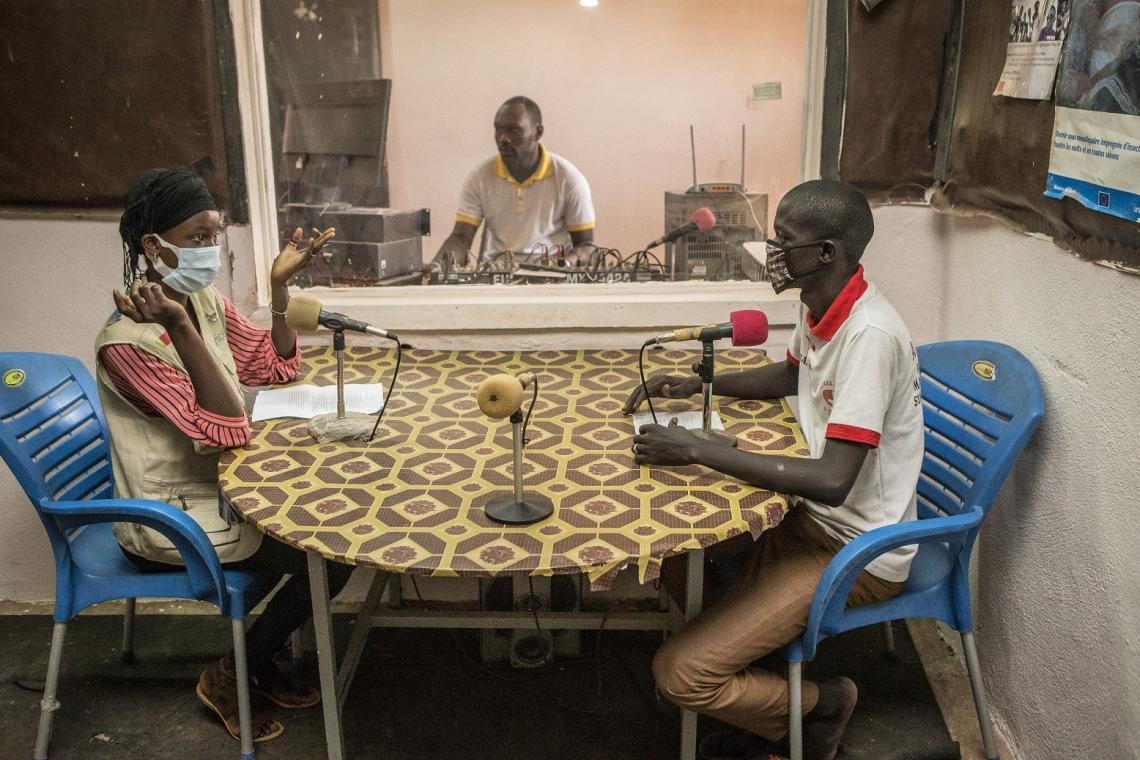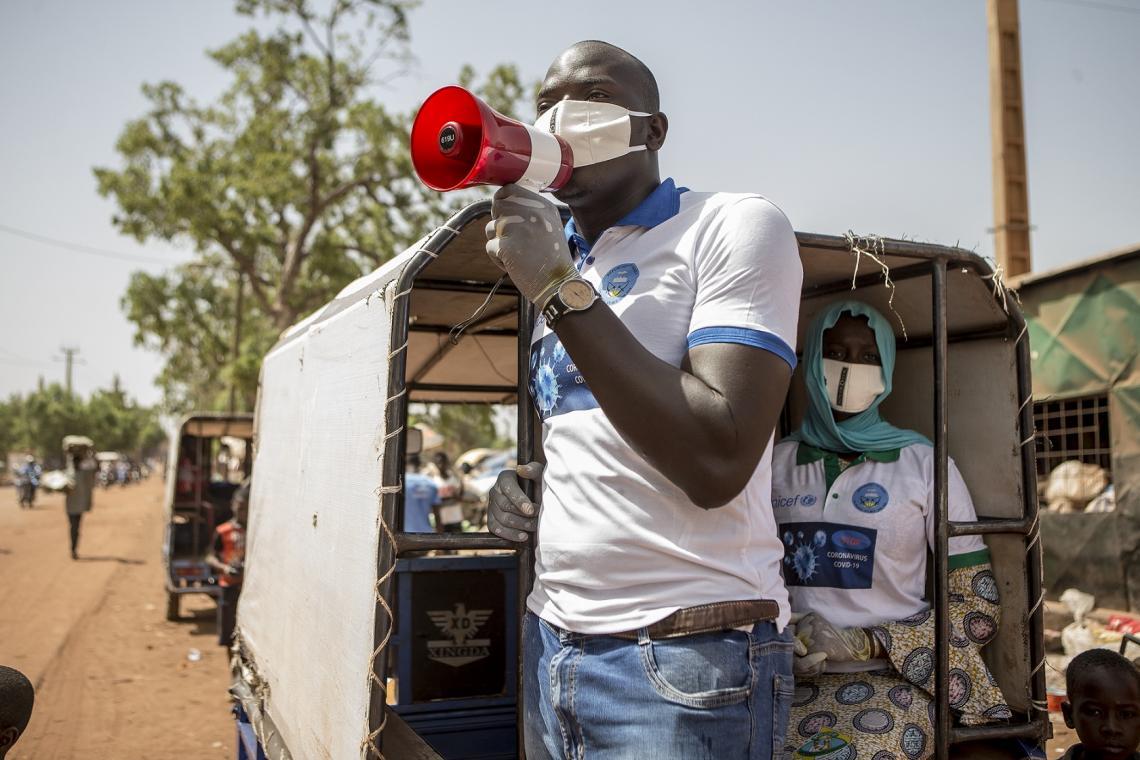Youth Advocates: Making Themselves Heard in the Fight Against COVID-19
“We should all be in school, but the schools are closed. Children need to play, but we can’t go out and have fun anymore,” says 15-year-old Fatoumata. “All because of this awful disease.”
Some 3.8 million children across Mali have been affected by school closures aimed at preventing the spread of COVID-19. In an already complex and fragile environment, news of the coronavirus has brought with it even greater uncertainty – and fear.
“Families here are scared,” Fatoumata says. “I was afraid, too, when I heard that the disease had arrived in Mali.”
But Fatoumata is not letting that fear stand in the way of the mission she has taken on to protect her community and help prevent the spread of the virus.
Fact vs fiction
Fatoumata has been a child journalist since 2019, when she joined a training programme established by UNICEF and partners. Forty children from eight regions across Mali, including the conflict-affected north and centre of the country, received training in basic journalism skills, digital communications and children’s rights. The participants, more than half of them girls, now lead radio shows, write articles for newspapers, and shoot videos for social media.
An important part of the training has been discussions on the impact of rumours and the role that young people can play in combatting false information to keep their communities safe. As misinformation about COVID-19 has spread, these budding journalists’ new skills have become more valuable than ever.
“Before the training…I believed whatever I saw on Facebook,” Fatoumata says. “But since then, every time I see fake information on social media, I fight against it by sharing accurate information. I know, for example, that there’s currently no vaccine or treatment for COVID-19, and I tell people that.”

Today, Fatoumata is leading a radio show on COVID-19 on Kaoural FM, a local community radio station. She says that young people are an essential part of the response to COVID-19.
“It’s important for children and young people to understand this illness, because we’re the future of this country. Every country counts on its youth. When youth tremble, the world crumbles.”
Fatoumata’s words resonate in a region that has been hit hard by the deteriorating humanitarian situation over the past few years. A growing number of attacks on villages in the Mopti region has internally displaced some 100,000 people, the majority of them children. And as COVID-19 has spread in the region, accurate information provided by young people trained in promoting social cohesion has become vital.
Kola, 22, has also been playing his part in protecting against the coronavirus. With his mask in place and carrying hand sanitizer, he is visiting a local marketplace with other young people to talk about social distancing and handwashing.
“We target places where a lot of people gather, such as bus stations in Mopti and Sévaré, docks, and along riverbanks,” he says. “We crisscross these places with megaphones, riding ‘katakani’,” he says referring to the three-wheel motor vehicles popular in the country.

Kola admits that not everyone they meet is receptive to their messages about COVID-19.
“Some people don’t believe the disease is a problem here, and they don’t always respect what we do,” he says. “Sometimes people say that the virus can’t survive in hot countries. So, we tell them about the number of cases in the Mopti region, where the temperature is hitting 40 degrees Celsius.”
Kola says that such conversations have been important in addressing rumours and false information. “There’s been a real difference since we started sensitizing people about COVID-19,” he says as he mounts his katakani.
“People are beginning to listen. They are beginning to ask us questions so that they can understand better.”
